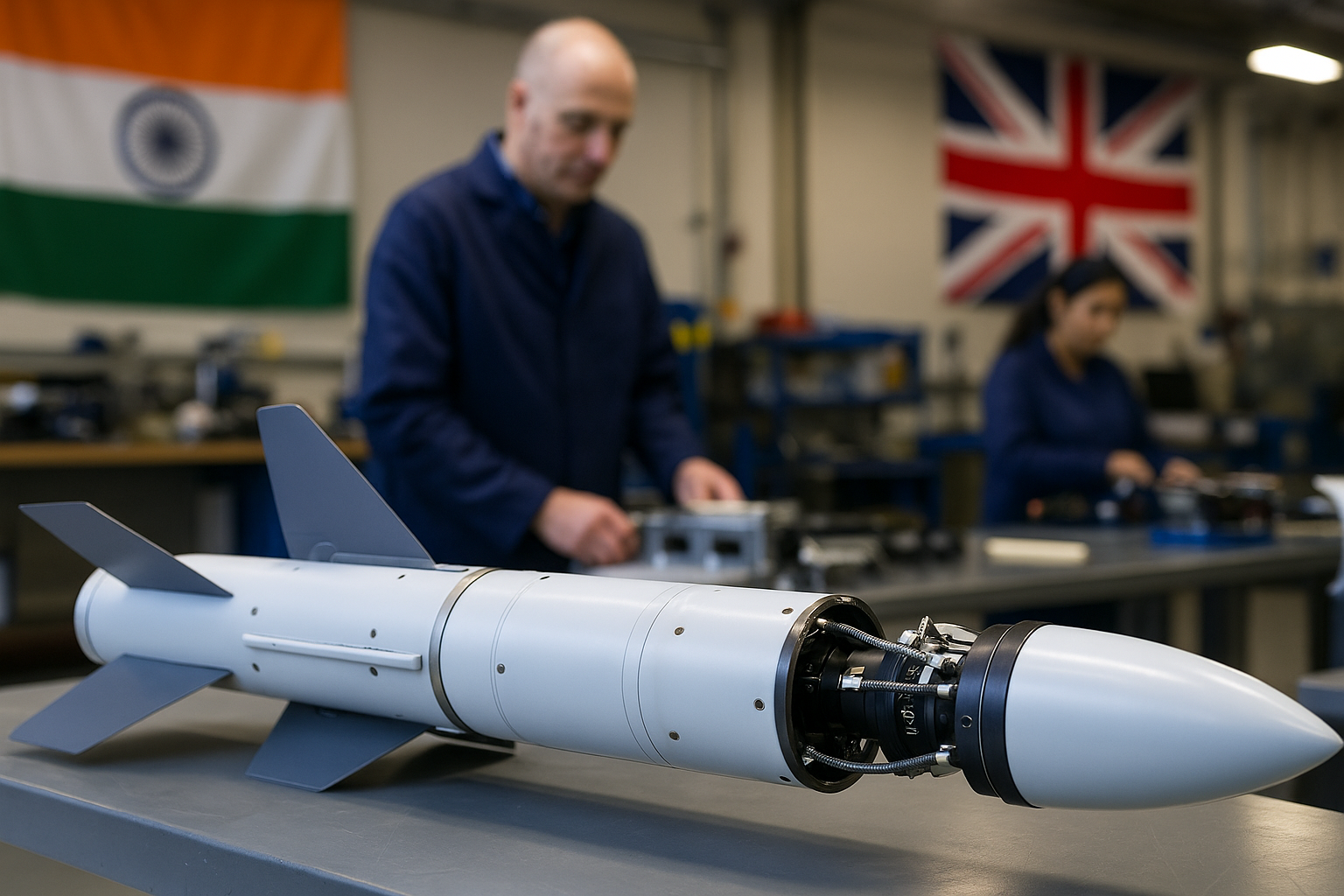UK Signs £350M Missile Deal With India in Major Defence Export Push
By Tredu.com • 10/9/2025
Tredu

UK Commits to £350M Missile Deal With India
The United Kingdom has signed a £350 million (≈ $468 million) deal to supply lightweight multirole missiles to the Indian Army. The announcement came during British Prime Minister Keir Starmer’s visit to India, where he and Indian PM Narendra Modi highlighted expanding strategic and commercial ties.
Built by Thales in Northern Ireland, the missiles are similar to those already produced for Ukraine, and the contract is expected to sustain about 700 jobs at the factory.
In parallel, the UK and India advanced a naval collaboration agreement worth an initial £250 million, focusing on electric-powered ship engines.
The UK government views this missile deal as a stepping stone toward a broader complex weapons partnership currently under negotiation.
Strategic & Market Implications
Strengthening Defence Exports & Jobs
For the UK, defence exports remain a high priority. This deal supports its “Plan for Change” agenda, lifting industrial capacity, innovation, and export pipelines. The factory in Northern Ireland, already serving Ukraine, will maintain critical scale.
Securing 700 jobs helps politically (particularly in a region with economic sensitivity), while signalling that the UK can compete in the global arms trade.
Deepening UK-India Strategic Ties
India has long worked to diversify away from traditional suppliers (Russia, etc.). This agreement with the UK furthers that shift and adds a layer of strategic alignment in Indo-Pacific defence.
The addition of a naval engines agreement signals integration across domains, not just missiles but maritime propulsion systems.
Risks & Market Fallout
- Regulatory & export controls: Delivery will depend on export licenses, compliance standards, and dual-use constraints.
- Delivery / performance risk: India will demand high reliability and integration with its existing systems; delays or performance issues could damage trust.
- Budget & policy shifts in India: Changes in defence budget, political priorities or shifts in India’s procurement policies could affect future orders.
- Competition & counteroffers: Other major arms producers (U.S., France, Israel) may counter with aggressive bids, discounts, or technology transfers.
- Budgetary pressure in the UK: Keeping military R&D and support sustainable amid other fiscal priorities is always a balancing act.
What to Watch Next
- Contract milestones – payments, deliveries, milestones, and acceptance schedules.
- Export license clearance – how smoothly the UK secures international export permissions.
- India’s next defence bids – whether future sectors (air, naval, missile defense) go toward UK firms.
- Offset / countertrade clauses – many deals include local manufacturing, tech transfer, or revenue sharing.
- Market reaction – defence stocks, aerospace suppliers, and UK manufacturing valuations may respond.
This £350 million UK-India missile agreement is more than a trade contract, it’s a strategic pivot for defence industrial policy, strengthening UK exports and deepening Indo-UK military ties.

How to Trade Like a Pro
Unlock the secrets of professional trading with our comprehensive guide. Discover proven strategies, risk management techniques, and market insights that will help you navigate the financial markets confidently and successfully.


